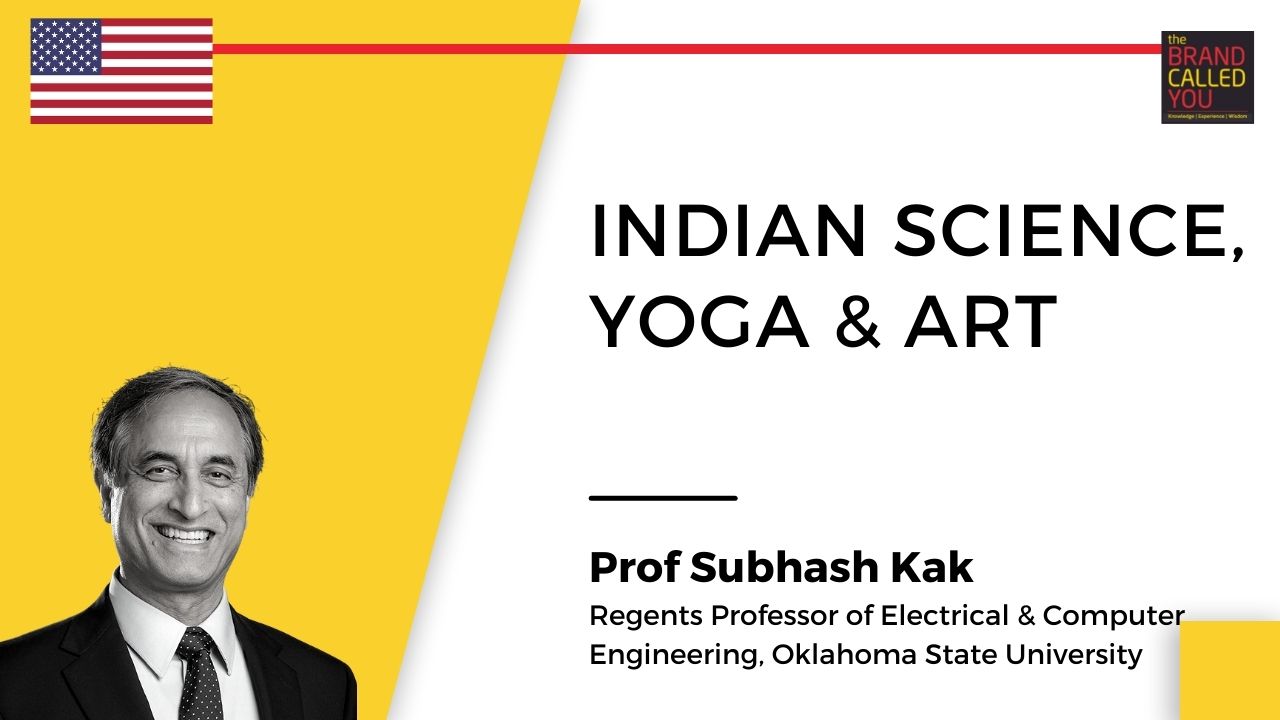Prof Subhash Kak, Regents Professor of Electrical & Computer Engineering, Oklahoma State University
- Prof Subhash Kak is the Regents Professor of Electrical & Computer Engineering at Oklahoma State University.
- He’s written extensively on Indian science, yoga, and art.
Podcast
Overview
00:31- About Prof Subhash Kak
- Prof Subhash Kak is the Regents Professor of Electrical & Computer Engineering at Oklahoma State University.
- He’s written extensively on Indian science, yoga, and art.
- He’s the author of 20 books.
- He’s a distinguished Indian scholar.
01:27- Ancient Indians were aware that the sun and the moon are approximately 108 times their respective diameters from the earth
I rushed to my library, pulled down my Rigveda, and looked at the organization in terms of the number of hymns. In each book, there are 10 mandalas or 10 books, and then I found that there was a code associated with that and that code reflects the knowledge that the authors of the hymns, the rishis, or the sages were aware of the fact that the sun and the moon are 108 times their respective diameters away from the earth. The very central idea of the Vedas is as above, so below. As in the cosmos, so within us.
06:05- How is the global community reacting to the work that you are doing?
I think the answer is consciousness science. The best in the west are aware that this is where India is going to show the way. We’re not talking ritual etc. because that’s the way of connecting with your own self. The very heart of the Vedas is consciousness science.
14:00- What is the synergy you see between Indian science, yoga, and art?
Yoga is the joining of the mind and consciousness. In the western tradition, everyone talks about their mind. In the Indian tradition, you have manus which is an instrument. In the western tradition, the word mind is often taken to stand both for consciousness and for the instrument where judgments are made. While in the Indian tradition there is a distinction, the mind has an ego or ahamkara and chitta which is a memory bank, and buddhi which is judgment.
RESOURCES:
You can connect with Prof Subhash Kak- LinkedIn
Enjoy this podcast?
If you learned new insights about Indian Science, Yoga, and Art, subscribe and share it with friends!
Love to give us 5 stars? ⭐⭐⭐⭐⭐ If you do, we’d love a review from you. Help us reach more people to keep them in the know as we talk to leaders, high achievers, and thought leaders from diverse backgrounds and nationalities. Excellence can come from anywhere; stay in the know, and hear from emergent high achievers and gurus.
Stay updated with what’s shaping the world today through the latest The Brand Called You Podcast episode. Follow us on iTunes, Spotify, and Anchor.fm.
Don’t forget to follow and message us on these platforms!
Website: https://tbcy.in/
Facebook: https://www.facebook.com/followtbcy
LinkedIn: https://www.linkedin.com/company/tbcy/
Twitter: https://twitter.com/followtbcy
YouTube: https://www.youtube.com/c/followtbcy
Thanks for listening!
Profile
Subhash Kak is Regents Professor of Electrical and Computer Engineering at Oklahoma State University in Stillwater. He has made fundamental contributions to neural networks, information science, and quantum theory.
He was the first to come up with the idea of quantum neural computing and he has proposed that the brain has three languages: associative, reorganizational, and quantum.


